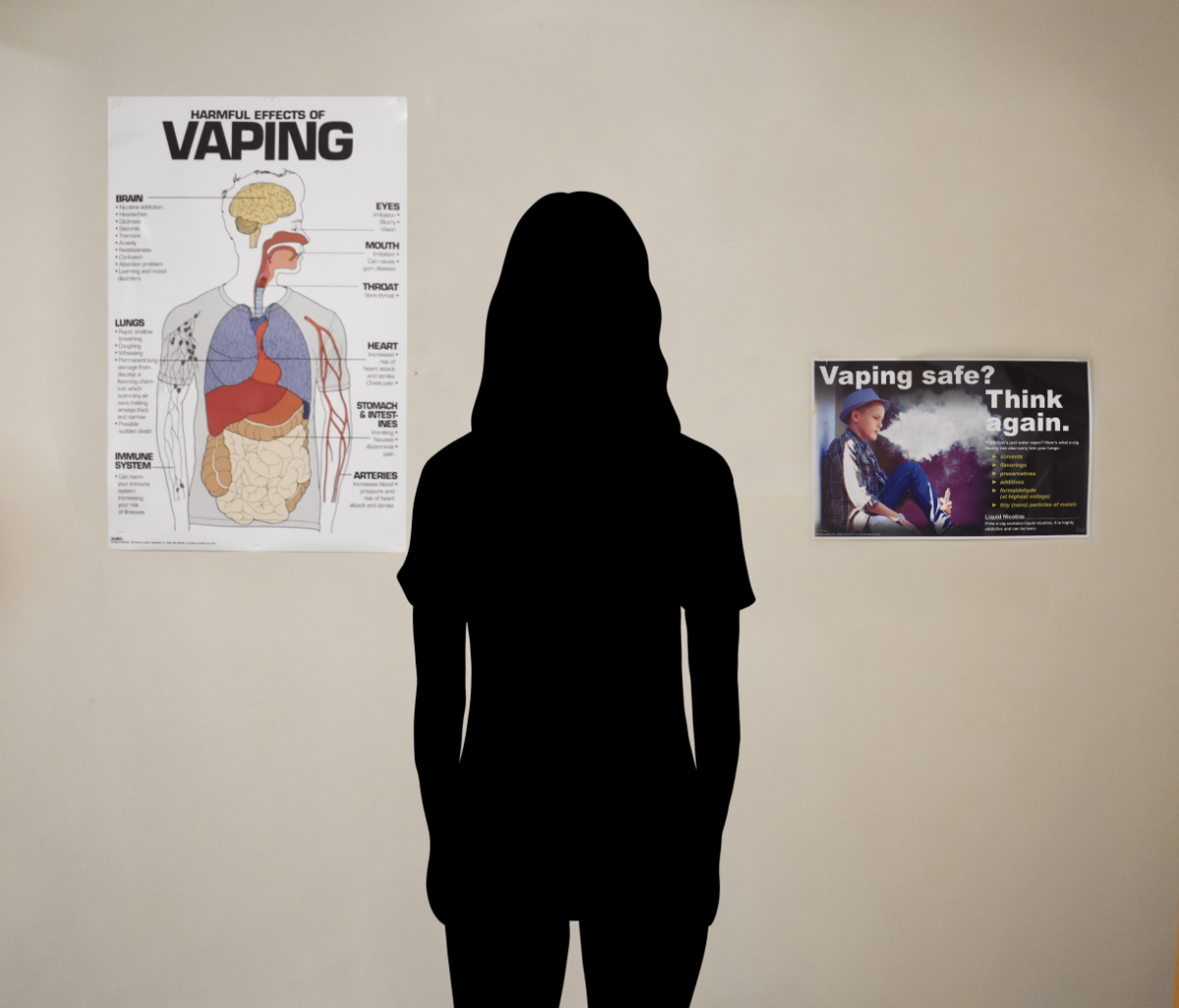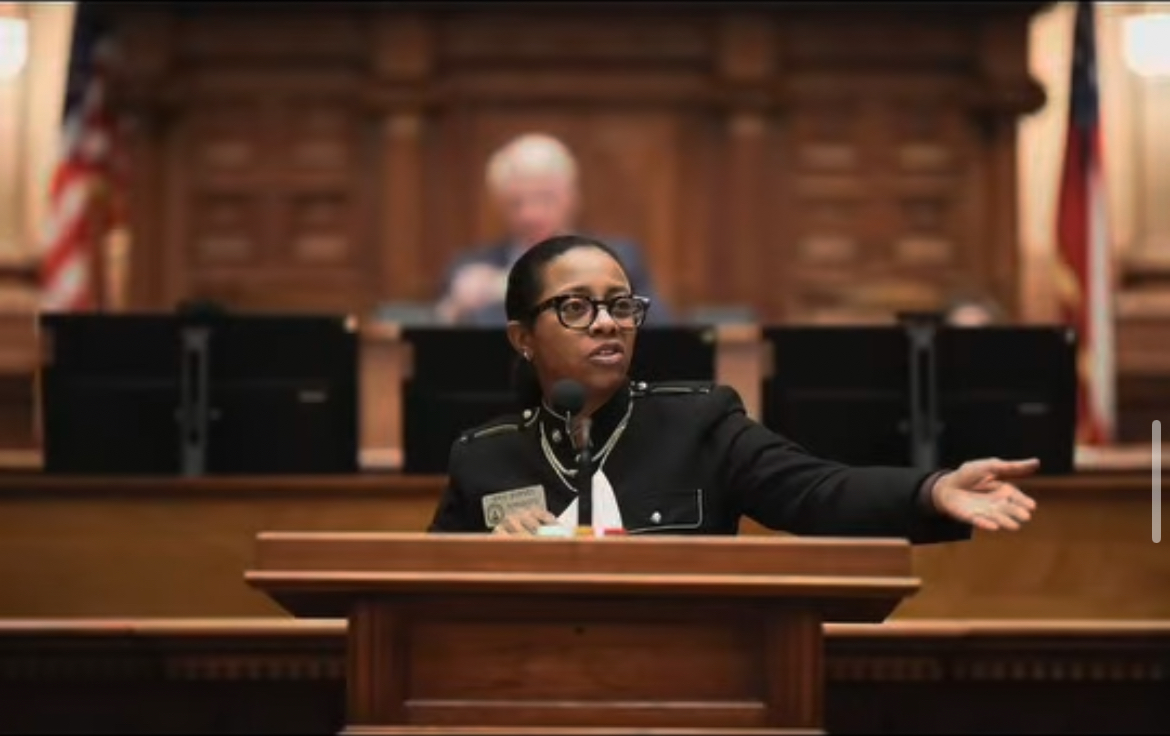
Beginning in the 2016-2017 school year, sophomores at Grady will have the opportunity to participate in the new Advanced Placement Capstone program. AP Capstone is a formal college preparatory program designed by the College Board which requires students to take four AP classes, write a 5,000-word research paper and pass two required courses — AP Seminar and AP Research. When students complete the requirements, they are able to receive an AP diploma.
“I think [AP Capstone] vies to bring a level of prestige,” Assistant Principal Willie Vincent said. “Grady has possibly one of the largest AP programs in the state. I think the career and college readiness helps us capitalize on what we know how to do.”
Taken over a two-year period, the two additional AP courses teach students to discuss current events in a group, classroom setting.
“AP Capstone is not based on a set body of knowledge students need to know,” said George Hegarty, AP Seminar teacher at Redmond Proficiency Academy in Redmond, Ore. “In AP Capstone, students are presented with real-world problems and [taught to] synthesize information.”
Using the analytical skills taught in AP Seminar and Research, students working toward an AP Capstone diploma must complete both a team research project and an individual research paper. Whether they are investigating prison systems and reforms, climate change or conflicts between science and religion, students are encouraged to choose topics for which they feel passion.
“I am a dancer, so I want to incorporate dance into my research,” said Marley Vidmar, sophomore at Chagrin Falls High School in Chagrin Falls, Ohio. “My topic idea for my individual research paper is the effect dancing has on one’s mood and intelligence.”
The general consensus among educators is that AP Capstone changes students’ perspectives about school work from “getting a grade” to “learning” and teaches students to look at the world from multiple lenses by synthesizing arguments on a variety of issues.
“As expected of an AP course, it is hard, but the rewards, I think come sooner than many [other college preparatory programs],” said Dale Hueber, Adolescence and Young Adulthood Social Studies teacher at East Bay High School in Gibsonton, Fla.
According to Russell Fox, AP Capstone director at Erie High School in Erie, Colo., and several other teachers, AP Capstone is College Board’s response to other collegiate preparatory programs, such as International Baccalaureate.
IB offers an environment focused on high academic standards similar to AP Capstone. Requirements for IB include six two-year-long IB classes, each varying in subject matter. In addition, students must complete the Diploma Program core, which is composed of a Theory of Knowledge class, an Extended Essay, and a Creativity, Action and Service project.
“IB curriculum allows you to become a more balanced student and have more global awareness,” said Ellie Ritter, senior and IB student at Decatur High School. “Something I’m learning in biology, I would also be able to connect to world history.”
Others see the more structured courseload as a disadvantage of the IB program.
“With Capstone, I could focus on Geography, World History, American history and government and never touch a math class,” said Steven Carruth, Principal of Coral Glades High School, in Coral Glades, Fla. “With Capstone [students] really get to pick what your focus is.”
After one semester of AP Capstone at South River High School, in Edgewater, Md., Principal William Myers noticed students had already become better writers, researchers and critical thinkers; all of these qualities are vital for success in higher education and eventually in the workplace.
“It walks them through the process they’re probably going to have to do in college, and they’re transferable skills,” Carruth said. “When they learn how to write better, they learn how to think a little more critically, and they learn how to argue a little better. In my opinion, it really gives them something they can take with them and apply to anything.”
Even though the course has clear benefits, many students have difficulty adjusting to the “non-traditional” structure of AP Seminar.
“AP Seminar sounds a lot like debate, especially in the current event aspect,” said Mario Herrerra, debate coach, who was recently named one of Grady’s AP Seminar teachers. “If it’s a little uncomfortable, we’ll all learn together. I never hide from discomfort because that’s where the true learning happens.”
Schools with established AP Capstone programs commented that over time students understood the value of the program.
“[The alumni] didn’t like the courses while they were here, but they found it gave them an advantage compared to other students in college,” said Jeffrey Smith, Director of Academic Affairs at the Indiana Academy for Science, Mathematics, and Humanities, in Muncie, Ind.
According to Hueber, colleges and universities oftentimes feel that incoming students are ill-equipped to handle the typical course load of a college freshman, particularly in the areas of research, analysis and writing.
“The AP Capstone program is one such program that offers students the opportunity to take advantage of a more rigorous academic curriculum,” said Shawn Abbott, admissions dean at New York University. “We generally believe it is a program that prepares students for the rigor they would encounter at a place like NYU.”
Freshman Maddie Brown signed up for Grady’s Capstone program with the hope other colleges will express similar support of the program.
“I thought it would be a good chance to do something important and productive and apply everything we learned in school,” Brown said. “I definitely think it will be a good opportunity.”
While Vincent agrees college readiness and stronger writing skills are expected benefits, he hopes the program will help students live up to their academic potential and accurately reflect Grady’s diversity.
“The strength of Grady has always been diversity,” Herrera said. “Sometimes it’s painful, but I don’t know any other way to understand other people than being honest and getting out of your comfort zone. I think AP classes allow that type of discussion.”
In order to achieve his goal, Vincent uses AP Potential, a web-based tool, to generate rosters of students who are likely to score a three or higher on an AP exam based on their PSAT scores. Five is maximum score on the AP exam. After making theses calculations, Vincent meets with students one-on-one to talk to them about taking AP courses.
“I have one student in 11th grade, and she has a possibility of making a three on AP Calculus AB,” said Vincent. “She has always been in regular math and somehow never had the opportunity to be on the accelerated track that leads to AP calculus.”
Knowing AP Capstone alone won’t change the AP program’s demographics, Vincent plans to use cluster funds to finance AP exams for students on free and reduced lunch; each regular AP exam costs $92, while the AP Seminar and AP Research exams are $139 each.
Although 65 percent of Grady’s students are not white, Vincent says AP classes rarely represent those demographics.
“I often have different opinions than people of different races,” junior Ebony Samuel, an African American student at Grady, said. “It’s interesting to hear what other students have to say because it’s coming from their backgrounds.”
In addition to gaining a broader perspective from a diverse group of students, Samuel also believes it is particularly important for an AP teacher to appeal to a larger student body.
Vincent emphasizes the importance of a compassionate teacher with abilities to inspire every student who has the drive to achieve academic rigor.
“We have one teacher, Mario Herrera, who’s teaching some kids who are sort of rough around the edges when it comes to writing and seeing themselves as great students,” Vincent said. “He’s teaching those students just like he would an honors or AP class — I mean a knockdown, killer job.”
Herrera does not believe he treats classes differently based on their academic curriculum. Instead, he caters his lesson plans to the needs of each class.
“I’m spending a lot of time trying to get students to create great ideas and be creative,” Herrera said. “I want people to remember how it was to create things like back in elementary school. For some reason that goes away in middle school. Let’s bring it back.”
Beginning next year, Herrera will bring his perspective as both a freshman English teacher and Grady’s debate coach to the AP Capstone program.
Grady’s administration has also chosen Susan Salvesen, a Social Studies and Civics teacher, as an instructor for next year’s AP Seminar classes, which has 84 freshman applicants.
“It’s gonna be a lot of fun,” Salvesen said. “I talked to [Herrera] right away because we’re going to be doing a lot of planning together.”
Salvesen and Herrera will complete an online course, which will teach them to score the Team Project and Presentation as well as the Individual Research-Based Essay and Presentation. Additionally, they will complete a one-week course in July and August.
Instructors who attended the course in previous years said the training focused on fostering student teamwork. To achieve this goal, teachers are encouraged to communicate the value of students’ ideas and opinions and reduce classroom time spent teaching.
“?A? seminar based class is student driven, so I intend to hel?p? ?create a community the way students envision it,” Herrera said. “The students are the ones who have to complete certain tasks, they have to be engaged during class, they have to be able to see the bigger picture and that’s going to require trust.”












